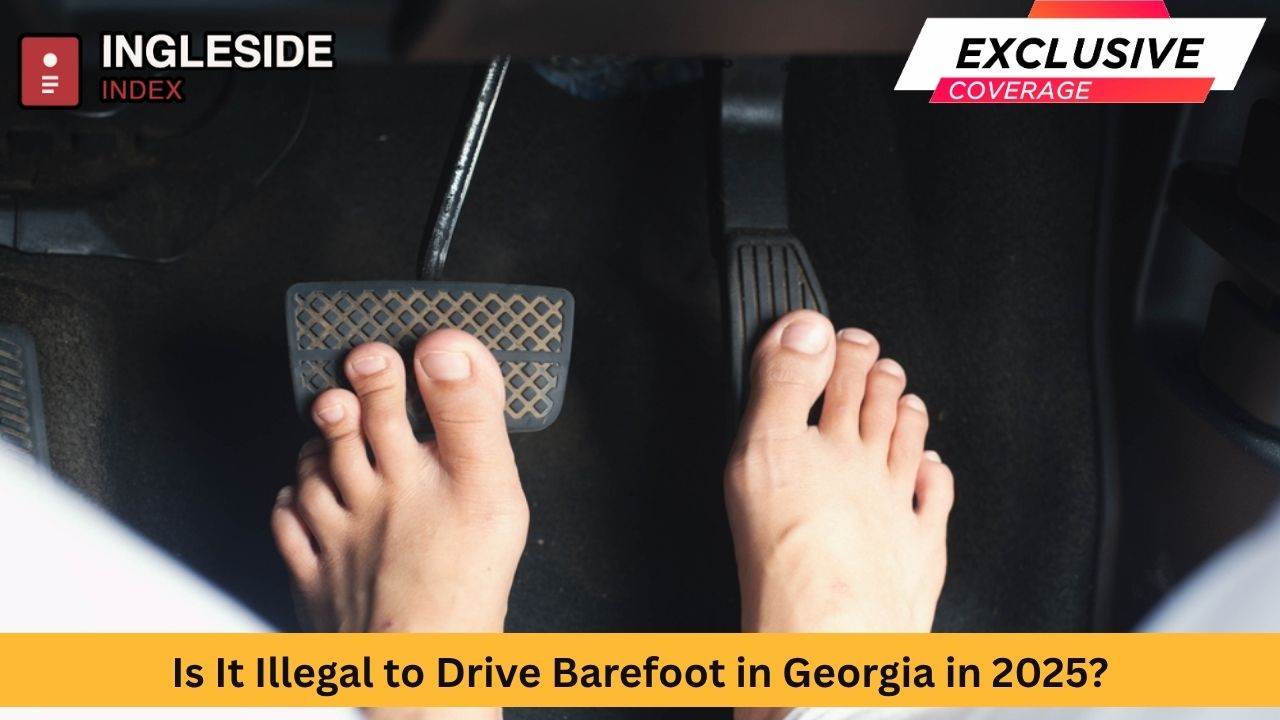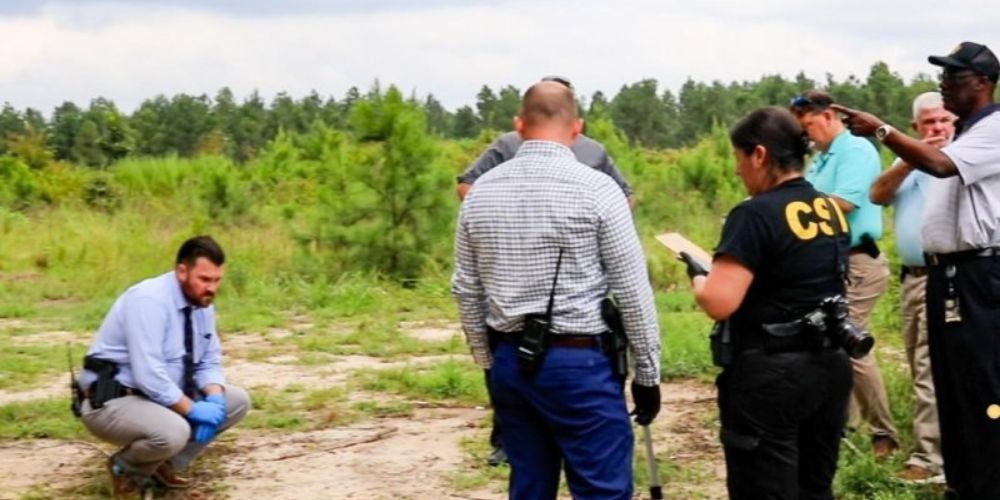Driving across Georgia—from the bustling streets of Atlanta and Savannah to the quiet byways of Macon and Valdosta—brings with it various urban legends and traffic myths. Among the most enduring is the belief that it’s illegal to drive barefoot. As we move through 2025, it’s time to settle the confusion and separate fact from fiction. Here’s a detailed, city-to-city breakdown of Georgia’s barefoot driving laws, supported by safety facts, legal guidance, and common misconceptions.
Understanding the Barefoot Driving Law in Georgia
The Legal Landscape
There is no Georgia law prohibiting barefoot driving in standard vehicles. Whether you’re heading down Peachtree Street in Atlanta, along the coastline near Tybee Island, or exploring the countryside outside Augusta, driving without shoes is completely legal.
The Exception: Motorcyclists
Unlike drivers of cars and trucks, motorcyclists are legally required to wear shoes. This is to protect feet from exposure to hot engines, gear mechanisms, and road hazards.
Busting the Myth: Is Barefoot Driving Illegal?
Why the Myth Persists
-
Misleading advice from parents or driving instructors
-
Misconceptions related to insurance or accident liability
-
Confusion with reckless driving laws
The Truth
All 50 U.S. states—including Georgia—do not ban barefoot driving for standard vehicles. Law enforcement in cities such as Atlanta, Savannah, Macon, and rural counties consistently affirm this.
Georgia Cities in Focus—Local Views on Barefoot Driving
Atlanta
In Georgia’s capital, where traffic congestion is routine, barefoot driving is not illegal. While it’s common for drivers to prioritize comfort during long commutes or hot days, safety still comes first.
Savannah
This coastal city embraces a more relaxed vibe. Tourists and residents alike often kick off their shoes, and the law allows it while driving.
Augusta
Home to the Masters golf tournament, Augusta has no ban on barefoot driving. Still, local law enforcement urges caution on busy roads like I-20 and Washington Road.
Macon
Macon’s warm climate and open roads may tempt drivers to go barefoot. Legally, it’s allowed—but personal judgment and caution are advised.
Rural Georgia
From Blue Ridge to Statesboro and Tifton, barefoot driving remains legal. Farm workers and travelers along Georgia’s scenic highways are free to drive shoeless.
Exceptions: When Footwear Is Required
Motorcyclists
Georgia law requires shoes for all motorcyclists, to ensure safety and reduce injury risk.
Commercial Drivers
While state law doesn’t mandate footwear, private companies may have rules requiring shoes for insurance or safety compliance.
Rental Vehicles
Some rental agencies, especially in cities like Columbus or Atlanta, may include clauses recommending or requiring footwear. Always check the agreement.
Safety Concerns: Should You Drive Barefoot?
Reduced Pedal Control
Sweaty feet, especially during Georgia’s humid summers, can slip off pedals, reducing braking precision.
Increased Injury Risk
In accidents, barefoot drivers risk stepping on broken glass, debris, or hot pavement.
Reckless Driving Citations
If involved in a crash, and it’s determined that being barefoot impaired your driving, you could face reckless or inattentive driving charges.
Barefoot Driving and Insurance in Georgia
Insurance Claims
Insurers in Georgia won’t deny coverage solely due to barefoot driving. But if going barefoot is proven to contribute to an accident, claims may be challenged.
Civil Liability
In cities with high accident rates like Atlanta or Columbus, being barefoot during a crash might be used against you in civil lawsuits, especially if deemed negligent.
Georgia Road Safety: The 2025 Snapshot
Crash Statistics
-
Over 1,700 fatalities reported in Georgia in 2022
-
Atlanta saw nearly 30,000 accidents in 2024
-
Drunk driving caused over 390 deaths annually
-
Over 1,000 citations for distracted driving issued during holiday weekends
Holiday Crash Data
During Memorial Day 2025 alone:
-
14 deaths and 190 injuries
-
1,800+ seatbelt violations
-
1,050 distracted driving citations
Georgia Traffic Laws at a Glance
Key Rules
-
Obey speed limits (30 mph to 70 mph)
-
Move over for emergency vehicles
-
Use hands-free devices while driving
-
Always wear seat belts
-
Avoid distracted driving
Common Fines
| Violation | Fine Range |
|---|---|
| Seatbelt Violation | $15–$50 |
| Speeding | $25–$500+ |
| Distracted Driving | $150–$900 |
| Reckless Driving | $300–$1,000 |
| Child Safety Seat Violation | $50–$100 |
How Georgia Compares to Neighboring States
Alabama & South Carolina
-
No barefoot driving laws for car drivers
-
Motorcycle footwear is required
-
South Carolina advises against it, but doesn’t ban it
Florida
-
No legal ban
-
Insurance claims may consider barefoot driving in accident investigations
Frequently Asked Questions About Barefoot Driving in Georgia
Is It Safe to Drive Barefoot?
Not always. While legal, it may reduce grip and control, increasing the chance of accidents.
Can I Be Pulled Over Just for Being Barefoot?
No. Police can’t stop you solely for being barefoot, but it could be noted during other violations or accidents.
Do Laws Vary by Age or Vehicle Type?
No. The same barefoot driving laws apply across all ages and for all standard passenger vehicles.
Are There City-Specific Ordinances?
No major city in Georgia—including Atlanta, Savannah, Macon, or Augusta—has ordinances banning barefoot driving.
Smart Driving Tips for Barefoot and Footwear-Free Drivers
-
Clean your pedals to prevent slipping
-
Avoid barefoot driving in rain or on hot days
-
Keep a spare pair of driving shoes in the vehicle
-
Use caution in high-traffic or construction zones
-
Motorcyclists: always wear proper footwear
Final Verdict: Legal, But Use Caution
For Georgia’s drivers—whether you’re in the bustling heart of Atlanta, the historic charm of Savannah, the greenways of Augusta, or the backroads of Macon—driving barefoot is 100% legal in 2025.
However, legal doesn’t always mean safe. When navigating congested highways or unpredictable weather, having proper footwear might be your best option for safety and peace of mind.
So if you’re hitting the road shoeless through Georgia’s peach groves or cityscapes, remember: the law is on your side—but caution should ride shotgun.











Leave a Comment